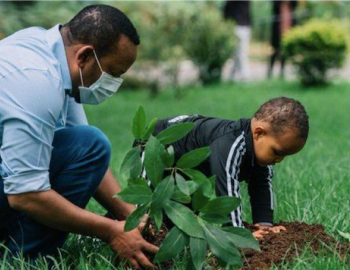WORKING PAPER: Supporting ambitious Intended Nationally Determined Contributions: Lessons learned from developing countries
WORKING PAPER: Supporting ambitious Intended Nationally Determined Contributions: Lessons learned from developing countries
CDKN is pleased to announce its latest Working Paper, Supporting ambitious Intended Nationally Determined Contributions: Lessons learned from developing countries.
CDKN has been working with a range of expert organisations to provide technical assistance to nine developing countries as they prepare their INDCs for submission to the UNFCCC by October 2015. In this paper, Chris Dodwell and Emelia Holdaway of Ricardo-AEA with Kiran Sura and Helen Picot of CDKN summarise some of the key learning points that have emerged from this diverse experience.
The submission of INDCs to the United Nations Framework Convention on Climate Change (UNFCCC) is a unique opportunity for developing countries to influence the shape of the new international climate regime, at the same time as accelerating their national actions. They are a necessary foundation for a successful outcome from the 21st Conference of the Parties to the UNFCCC (COP21) in Paris in December, and will be vital for underpinning effective climate policies in the years to come.
Developing countries are placing a high priority on preparing their INDCs. INDCs present an opportunity for developing countries to showcase the practical steps they have taken in recent years to mainstream climate change into their development strategies.
The authors conducted a series of interviews with people preparing INDCs in Bangladesh, Colombia, Ethiopia, The Gambia, Kenya, Pakistan, Peru, the Republic of the Marshall Islands and Uganda. This Working Paper sets out the five principal conclusions that emerge from these interviews:
- Consider INDCs as statements of political ambition, both domestically and internationally.
- Have a clear vision for the structure and content from the outset.
- Build on existing policies, with targeted use of new analysis to fill knowledge gaps.
- Build broad-based support across economic sectors through innovative approaches to consultation.
- Make plans for effective implementation now, and consider how international support, finance and other mechanisms may adjust ambitions after 2015.
About CDKN’s Negotiations Support programme
This Working Paper and the related technical support to developing countries on INDC preparation is a pillar of CDKN’s Negotiations Support programme. CDKN’s vision is that international climate change processes and agreements should reflect and respond to the positions and challenges articulated by the world’s poorest and most vulnerable countries. We are working to help the leaders and negotiators of these countries to become informed, skilled, active, connected and influential actors in international climate change talks. Only when they have a strong voice and can bring their influence to this international stage will more robust, progressive and equitable outcomes be possible for all parties.
This Working Paper is a companion volume to CDKN’s ‘Guide to INDCs’ (2015), which provides a practical example of how an INDC could be structured and potential key elements and content. Each section cross-references the relevant text from the Lima Call to Climate Action and other relevant guidance, suggests data sources and provides illustrative examples of the type of content and narrative that Least Developed Countries and Small Island Developing States might include.
Download the full working paper: Supporting ambitious Intended Nationally Determined Contributions: Lessons learned from developing countries.
Find out more about how CDKN are supporting developing country INDC preparations at www.cdkn.org/indc



